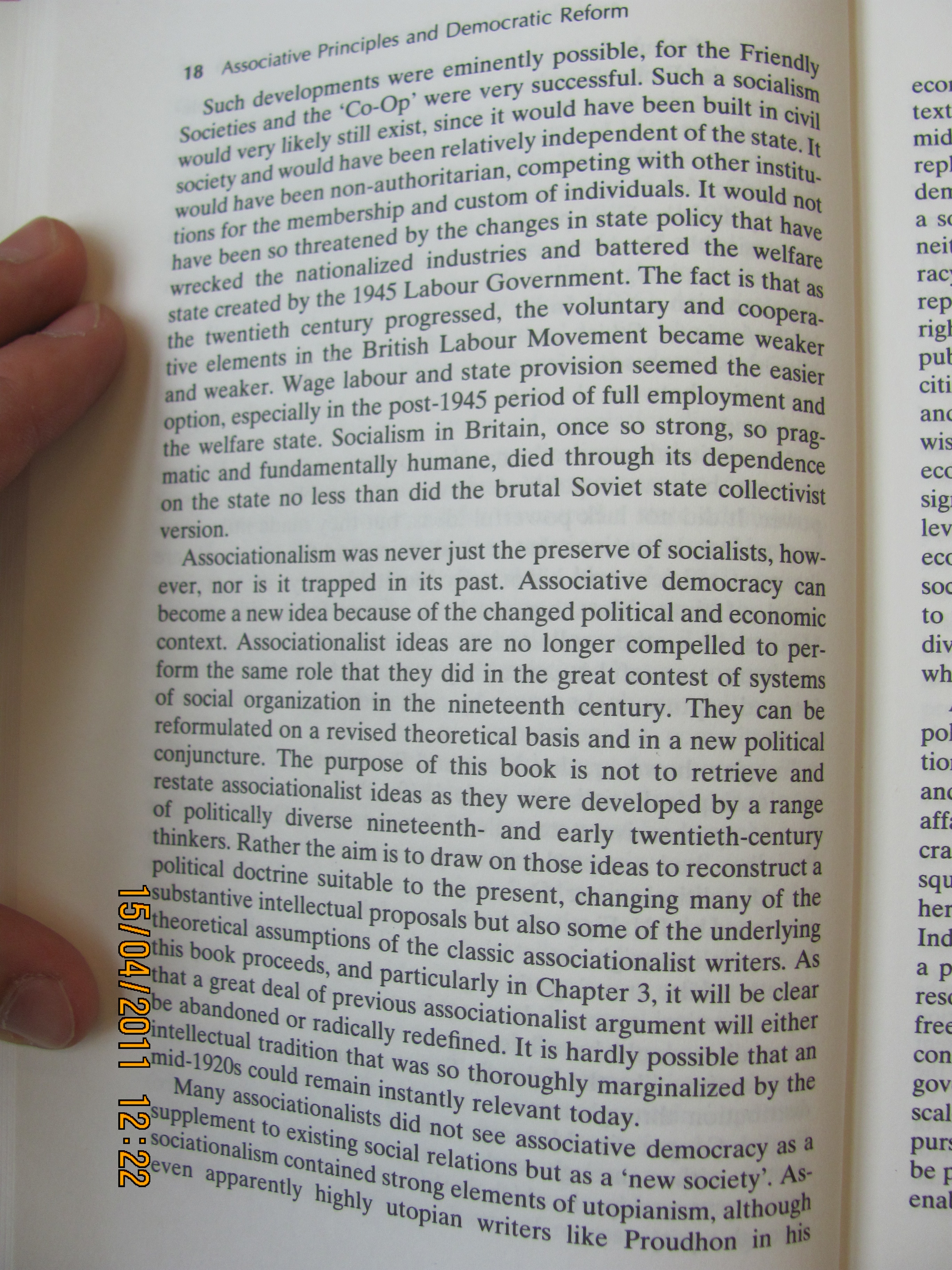61970 IMG#06

18 Associative Principles and Oemocratic Reform
Such developments were eminently possible, for the Friendly Societies and the ‘Co-Op’ were very successful. Such a socialism would very likely sdlJ exist, sińce it would have been built in civil society and wouid have been relatively independent of the State. It would have been non-authoritarian, competing with other institu-tions for the membership and custom of individuals. It would not have been so threatened by the changes in State policy that have wrecked the nationalized industries and battered the welfare State created by the 1945 Labour Government. The fact is that as the twentieth century progressed, the voluntary and coopera-tive elements in the British Labour Movement became weaker and weaker. Wagę labour and State provision seemed the easier option, especiaily in the post-1945 period of fuli employment and the welfare State. Socialism in Britain, once so strong, so prag-matic and fundamentally humane, died through its dependence on the State no less than did the brutal Soviet State collectivist version.
Associationalism was never just the preserve of socialists, how-ever, nor is it trapped in its past. Associative democracy can become a new idea because of the changed political and economic context. Associationalist ideas are no longer compelled to per-form the same role that they did in the great contest of systems of social organization in the nineteenth century. They can be reformulated on a revised theoretical basis and in a new political conjuncture. The purpose of this book is not to retrieve and restate associationalist ideas as they were developed by a rangę of politically diverse nineteenth- and early twentieth-century thinkers. Rather the aim is to draw on those ideas to reconstruct a political doctrine suitable to the present, changing many of the c=£>substantive intellectual proposals but also some of the underlying ^^theoretical assumptions of the classic associationalist writers. As , (S)this book proceeds, and particularly in Chapter 3, it will be elear Kl^that a great deal of previous associationalist argument will either K|)be abandoned or radically redefined. It is hardly possible that an Rs)intellectual tradition that was so thoroughly marginalized by the ^^mid-1920s could remain instantly relevant today.
Many associationalists did not see associative democracy as a ^^supplement to existing social relations but as a ‘new society*. As-sociationalism contained strong elements of utopianism, although
[r^even apparently highly utopian writers like Proudhon in his
ps)
Wyszukiwarka
Podobne podstrony:
45747 IMG#25 Associative Principles and Oemocratic Reform 37 CK I gun to question whether existing s
IMG#10 22 Associative Principles and Democratic Reform public power and of the devolved associationa
IMG#14 26 Associative Principles and Democratic Reform democratic naturę of the ‘primary association
IMG#20 32 Associative Principles and Democratic Reform Laski in ‘The Problem of Administrative Areas
IMG#08 20 Associative Principles and Democratic Reform yoluntary associations in order to do so. Ass
88880 IMG#28 40 Associative Principles and Democratic Reform democracy as communication have the adv
82043 IMG#22 34 Associaftve Principles and Democratic Reform contradśction with centralized, bureauc
83038 IMG#16 28 Associative Principles and Democratic Reform a pleni tude of power and the right to
więcej podobnych podstron